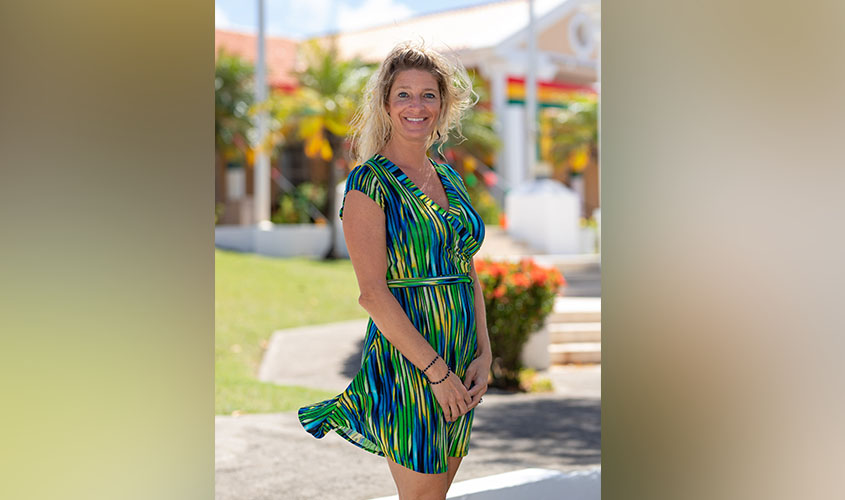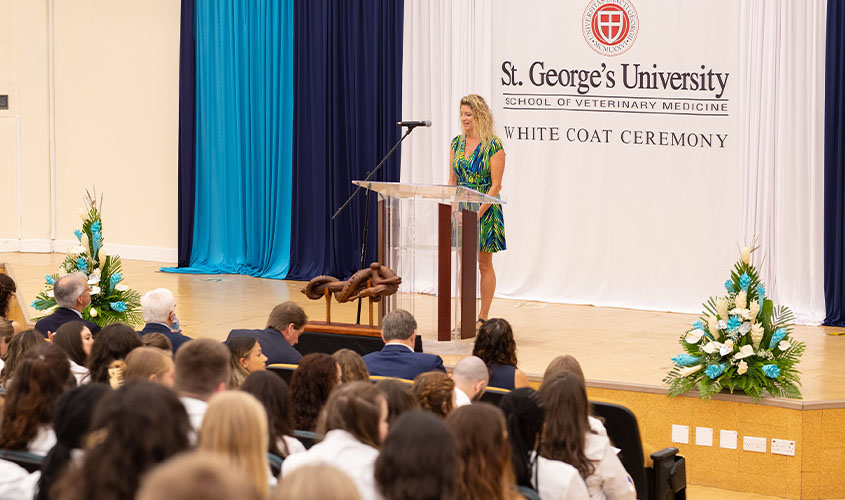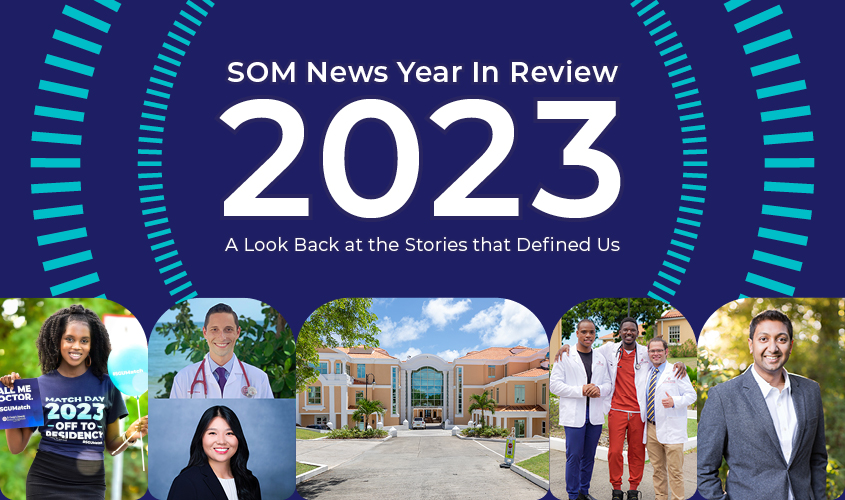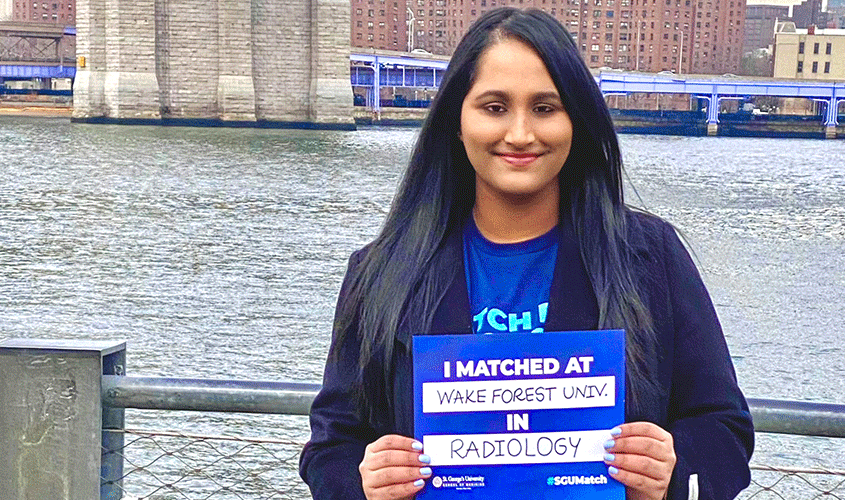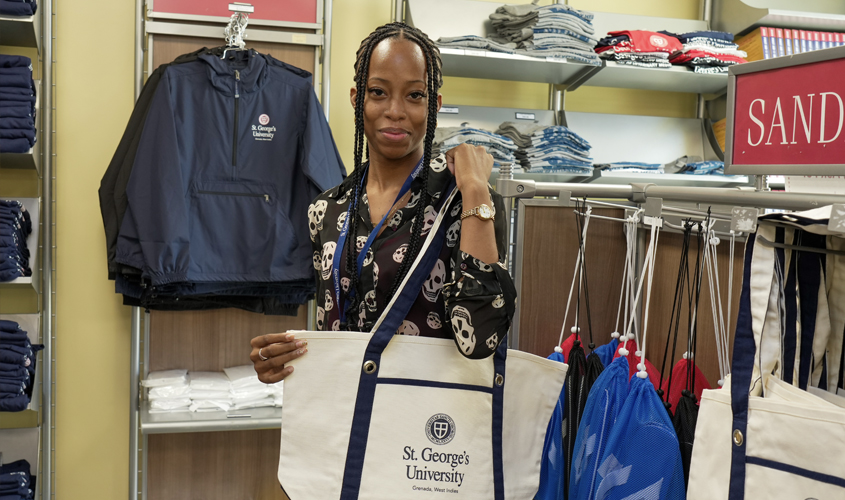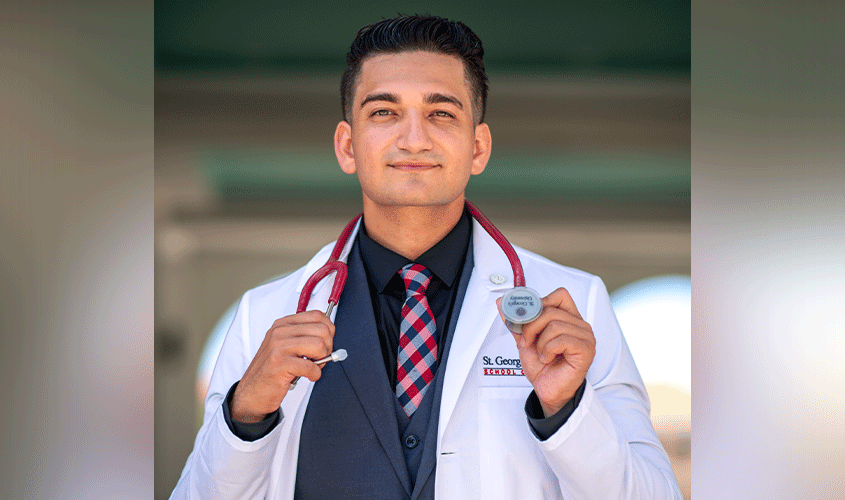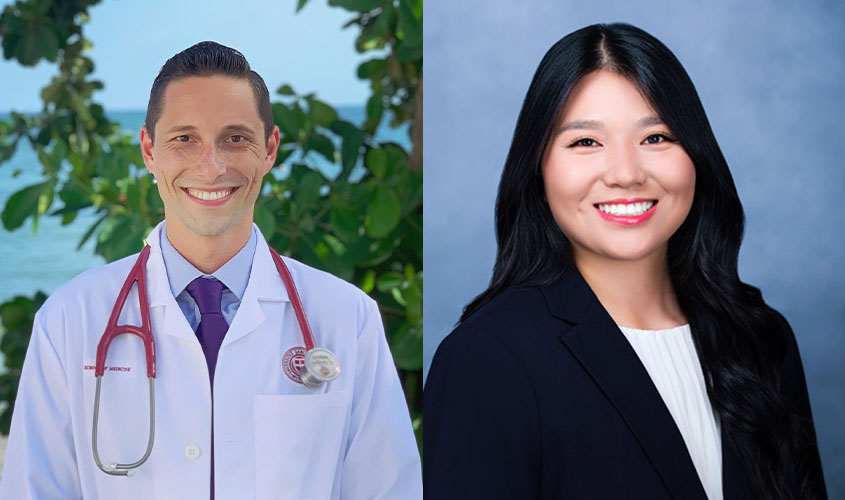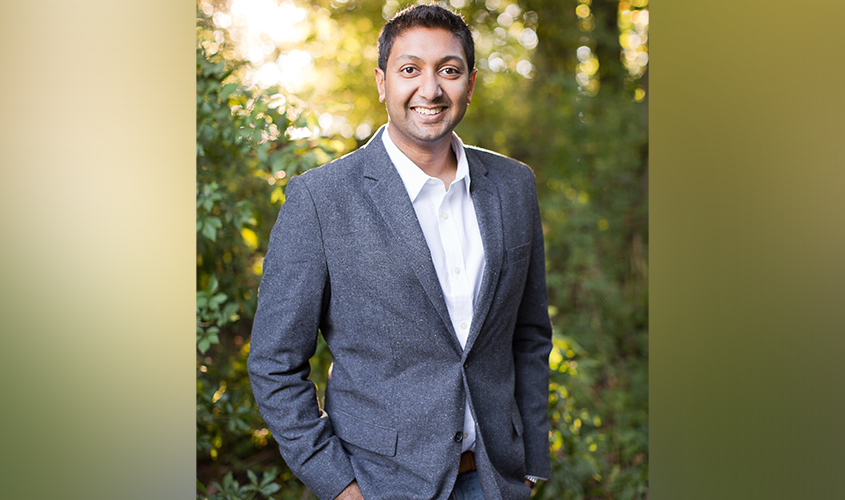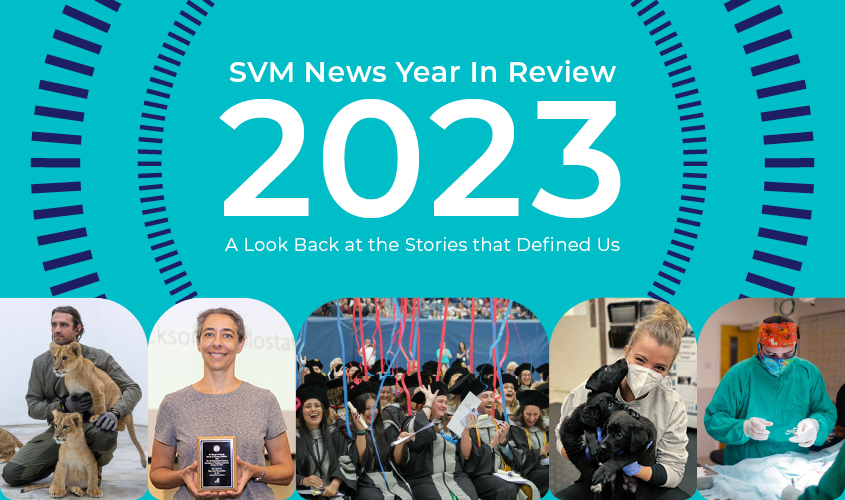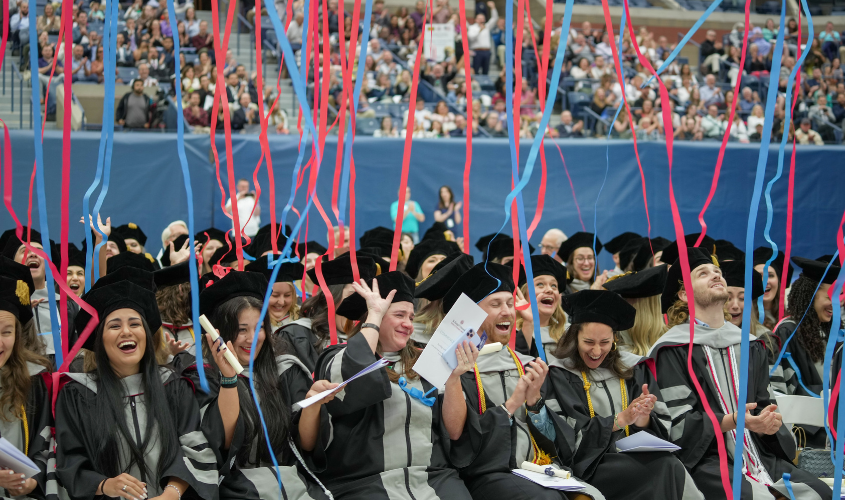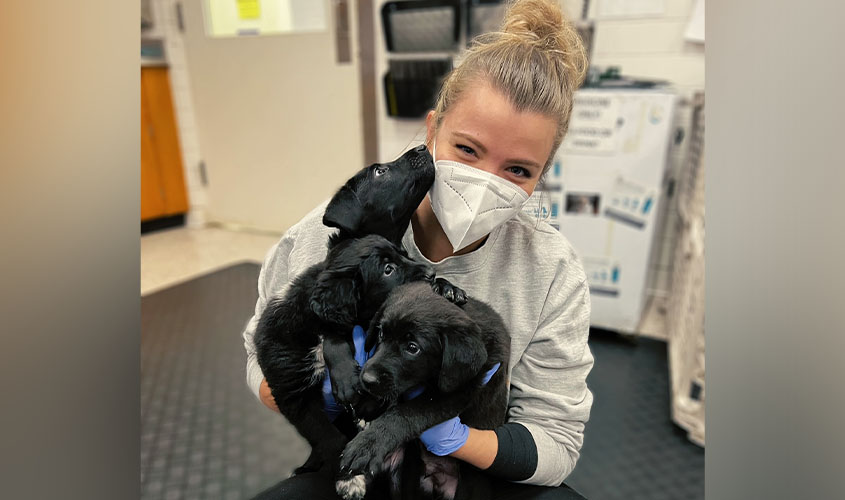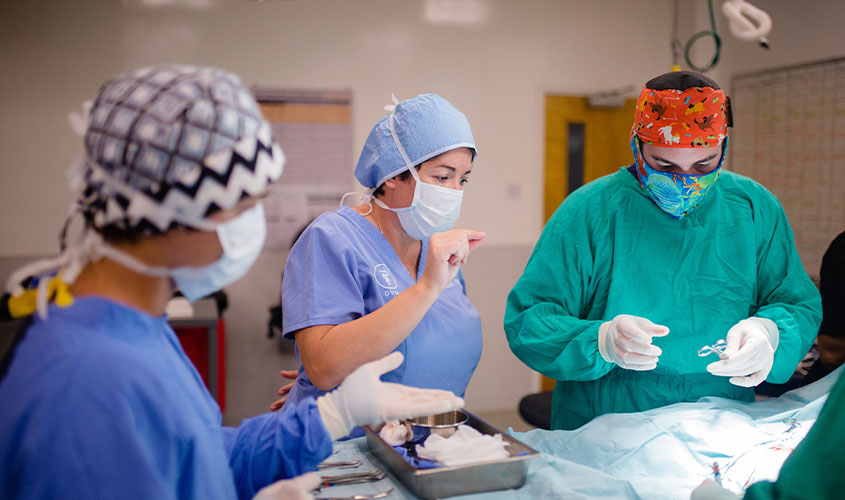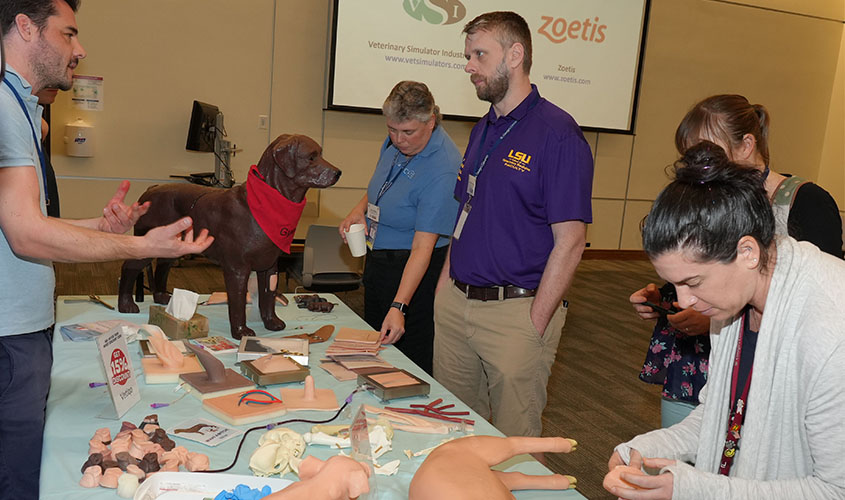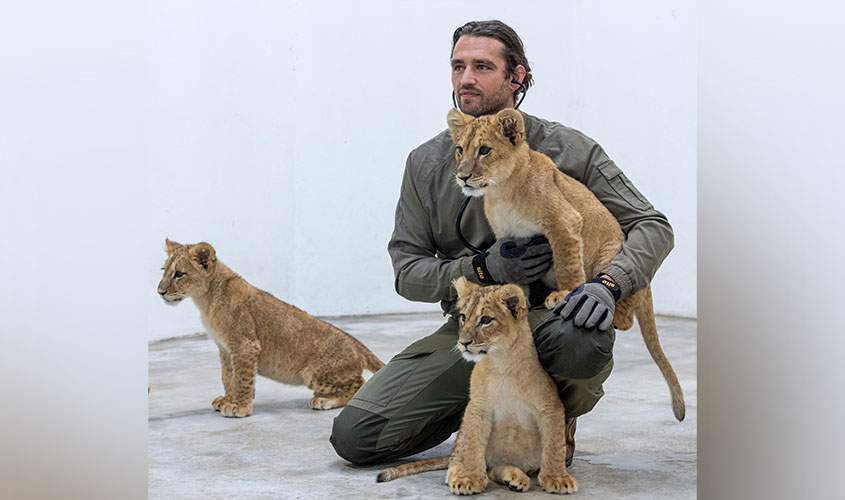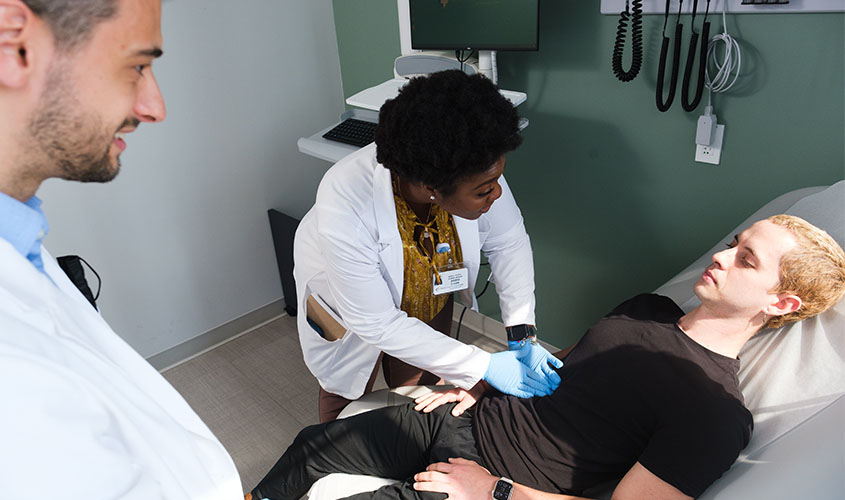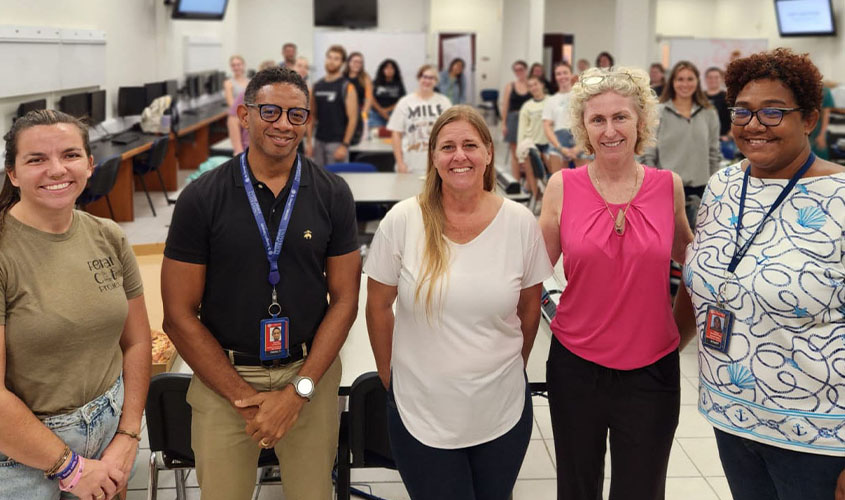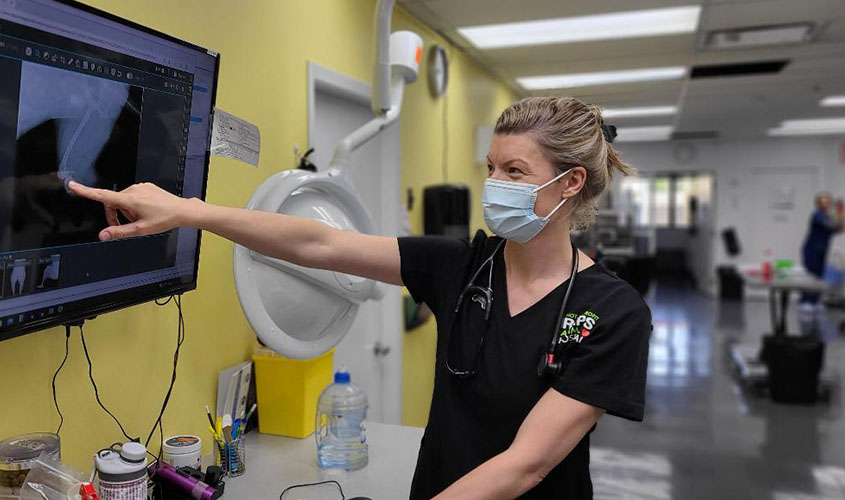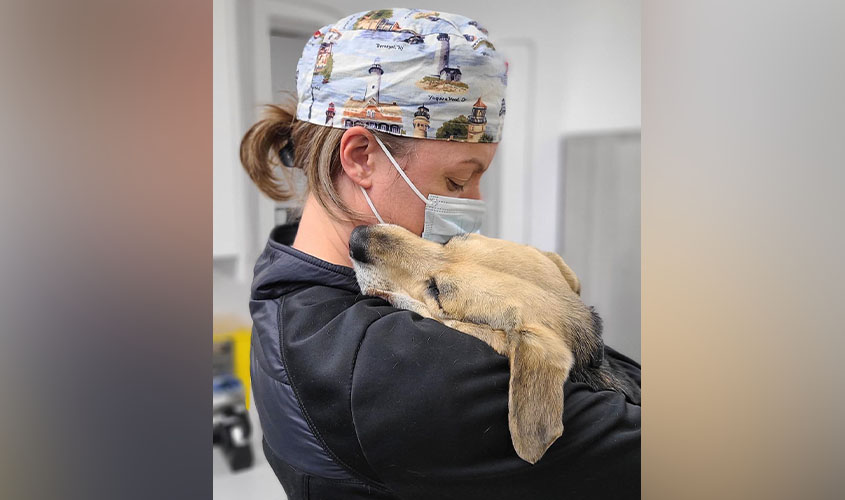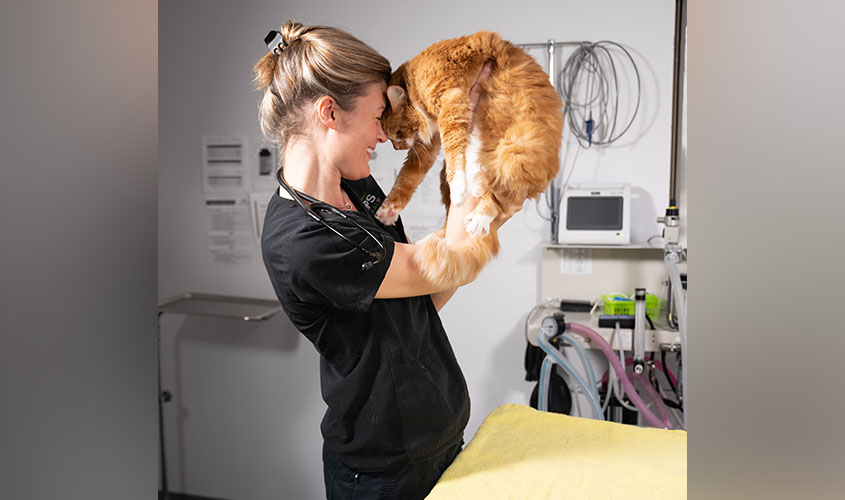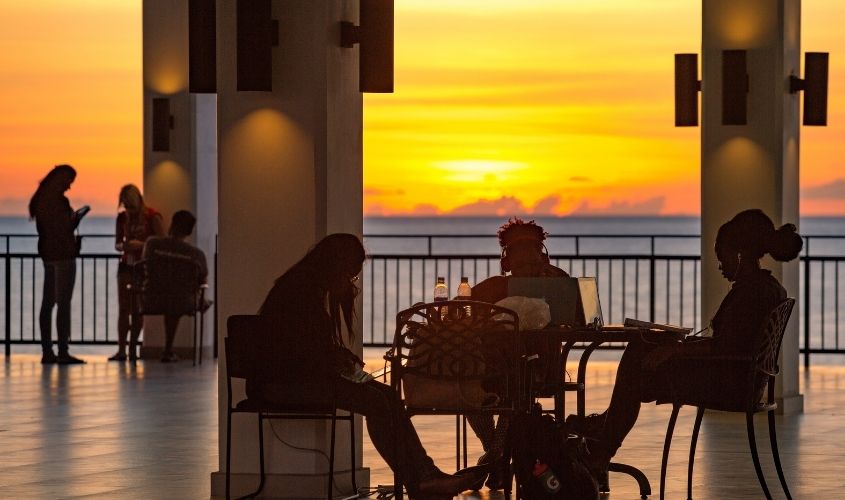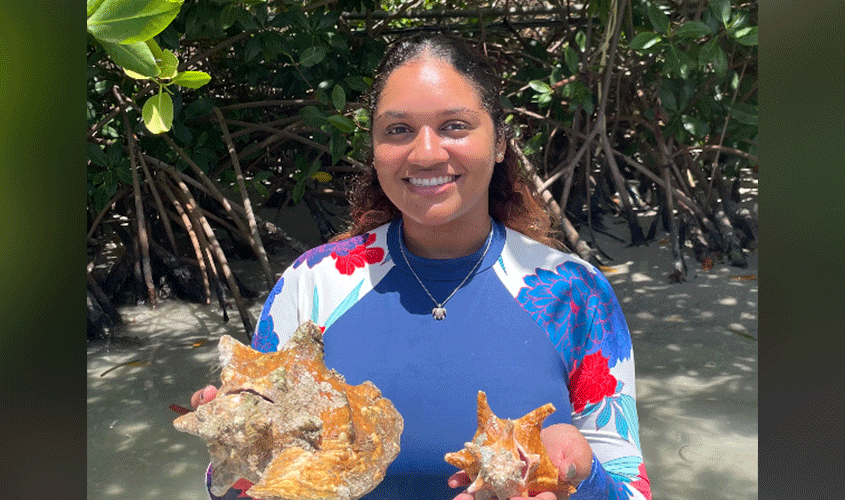
Patrick Dineen, MD, MBA, is the current program manager of cancer prevention and screening at Stony Brook Cancer Center where he leads their mobile mammography program. The program provides breast cancer screenings to historically underserved communities.
One St. George’s University School of Medicine and School of Graduate Studies alum is playing a key role in making screening for breast cancer more accessible for women on Long Island through his career in cancer outreach.
Patrick Dineen, MD, MBA, is the current program manager of cancer prevention and screening at Stony Brook Cancer Center. In his role with Stony Brook, he helped establish their mobile mammography program. The program provides breast cancer screenings to historically underserved communities.
“We screen uninsured women, we also screen insured women. The working woman, who works hard, has a family, takes care of a partner, children, the last person she takes care of is herself,” said Dr. Dineen. “When we’re parking outside of her business, and she sees us, she knows she can be back at her desk in 15 minutes and get her annual screening done.”
The impact of outreach
According to the National Breast Cancer Foundation, nearly 1 in 8 women in the United States will develop breast cancer in their lifetime. In 2023 alone, there will be almost 300,000 new cases of invasive breast cancer in the United States. One of the most important prevention measures for invasive breast cancer is early detection.
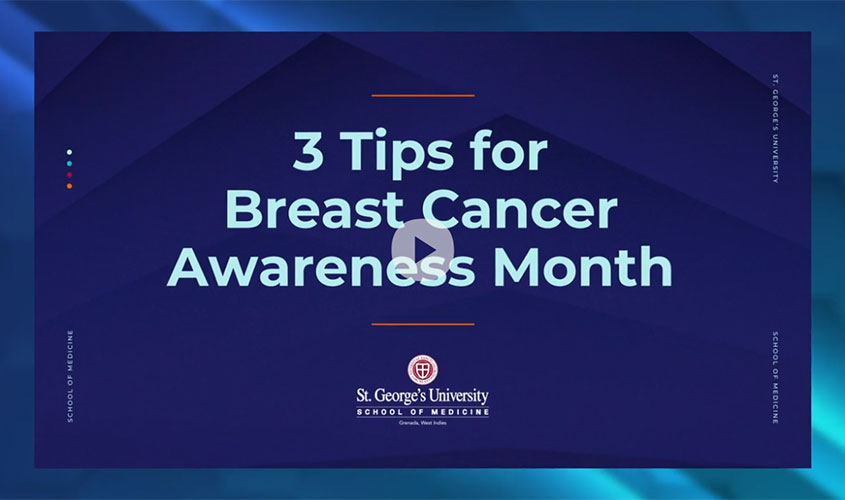
Dr. Dineen spent his first few years at Stony Brook getting the mobile program off the ground and presenting its value to the community and businesses across Long Island. The program began servicing the community in 2018 and has since performed over 7,000 cancer screenings and detected over 40 cancers. A priority for Dr. Dineen in the inception of the program was ensuring the mobile unit’s staff was representative of the community, emphasizing the need for diversity.
“An interesting statistic is that in the brick-and-mortar facility at Stony Brook Breast Cancer, 12 percent of the women screened are minorities. Almost 80 percent of the women screened on the mobile unit are minorities,” Dr. Dineen added.
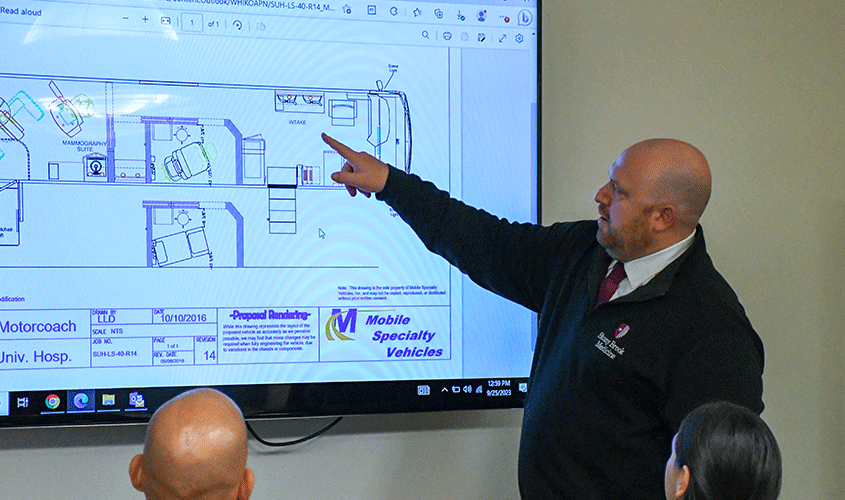
Dr. Dineen reviewing Stony Brook’s mobile mammography unit’s blueprint with his staff.
Dr. Dineen’s outreach efforts extend beyond the Long Island community. He publishes papers and speaks at conferences to inspire other healthcare professionals to think about how they can better serve communities in need. He is also the co-chair of mammography for the Mobile Healthcare Association, a national organization dedicated to increasing access to quality healthcare.
“Health equity means bringing healthcare, especially what we offer in breast cancer screening, to as many people as possible regardless of their gender, insurance status, immigration status, social determinants of health that stand in their way; making healthcare as accessible as possible to as many people as possible. And that is exactly what our program at Stony Brook was built for,” said Dr. Dineen.
Finding his path
Dr. Dineen’s interest in cancer outreach is personal. His father, an orthopedic surgeon, passed away from cancer at 54 years old. In response to his father’s death, Dr. Dineen started a non-profit foundation that strives to bring happiness to cancer patients, the Dr. Patrick J. Dineen Memorial Foundation.
“My father was a doctor, and seeing how he led his life and the impact he made on other people’s lives made me want to be just like him,” Dr. Dineen said. “I know he would be proud of me as he has since passed from cancer, which led me down the path I’m on today.”
While Dr. Dineen ended up with a career in cancer outreach, the path he took to medical school was not a traditional one. He majored in accounting and planned to enter a career in business after graduating with his bachelor’s degree. Dr. Dineen also pursued his other passion, ice hockey, playing on a minor league team. It wasn’t long, though, until he realized his true calling was in medicine. And for Dr. Dineen, choosing SGU for his medical school journey was an easy decision.
“What made SGU stand out to me were the people that I knew in the healthcare system,” said Dr. Dineen. “Growing up in the world of medicine, SGU was a name that I repeatedly heard. I knew I would find the right home at SGU because of its reputation and others before me who had similar paths and were now happy, comfortable, and successful upon graduation.”
Once he was on his way to a career as a physician, Dr. Dineen realized he didn’t want to give up his passion for business. He decided to combine his interests and pursued his MBA with the goal of working on the business side of medicine.
A perfect day on the job
Dr. Dineen eventually crossed paths with Stony Brook Medicine. They approached him with the opportunity to lead their mobile mammography program.
“I stepped back and thought about my values and what I love. I love speaking with people, I’m a person of the community, I love having an impact,” Dr. Dineen said. “Despite it being a different path than the one I originally intended, a career in cancer outreach was the right way for me to move forward in healthcare.”
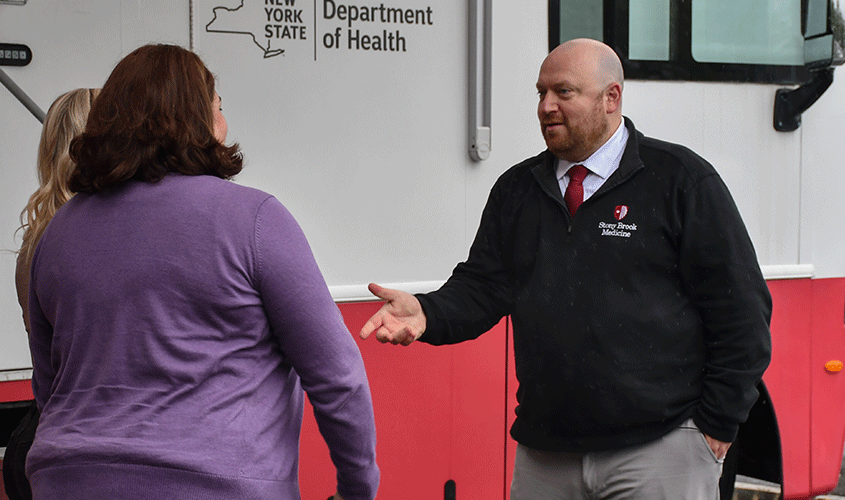
Dr. Dineen meeting with community members to discuss the importance of breast cancer screenings.
Evaluating where he is now, Dr. Dineen is grateful to have taken the road less traveled. It allows him to experience what he deems his perfect day in the role.
“My perfect day is getting feedback from those I supervise or our community partners about the impact we made. Although it’s a bittersweet moment when our team finds someone’s cancer, we also recognize that if we hadn’t discovered it, the patient might never have undergone screening for various reasons. Screenings allow us to find cancer before there is a physical manifestation. I can’t imagine a better day than hearing stories about the lives we’ve saved.”
—Sarah Stoss
Related Reading










